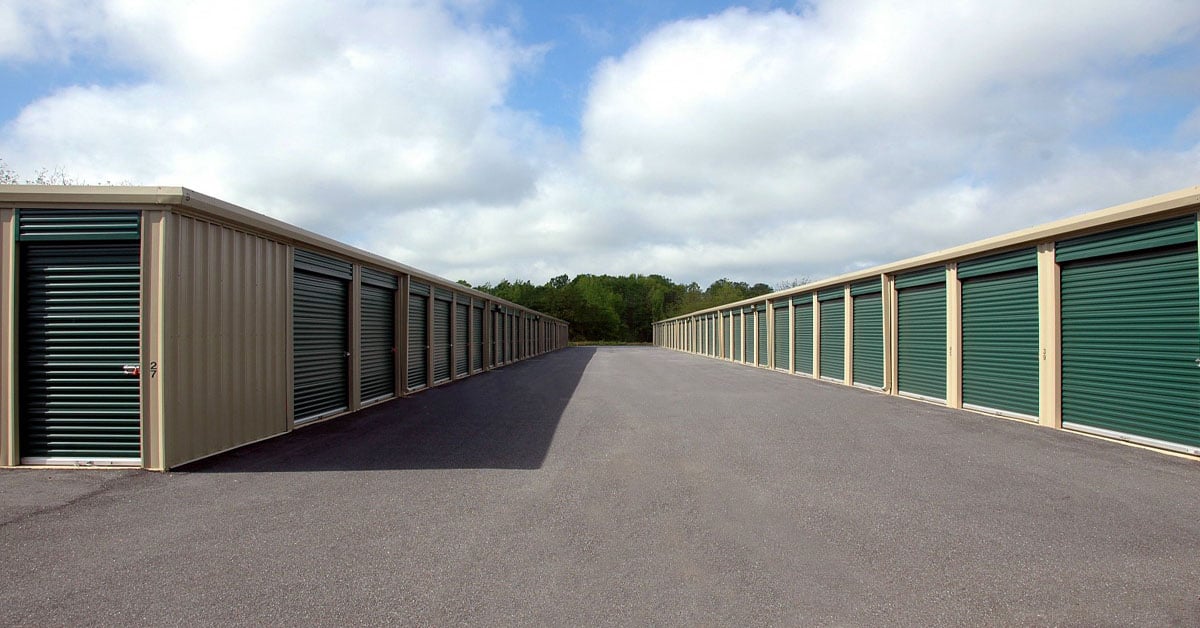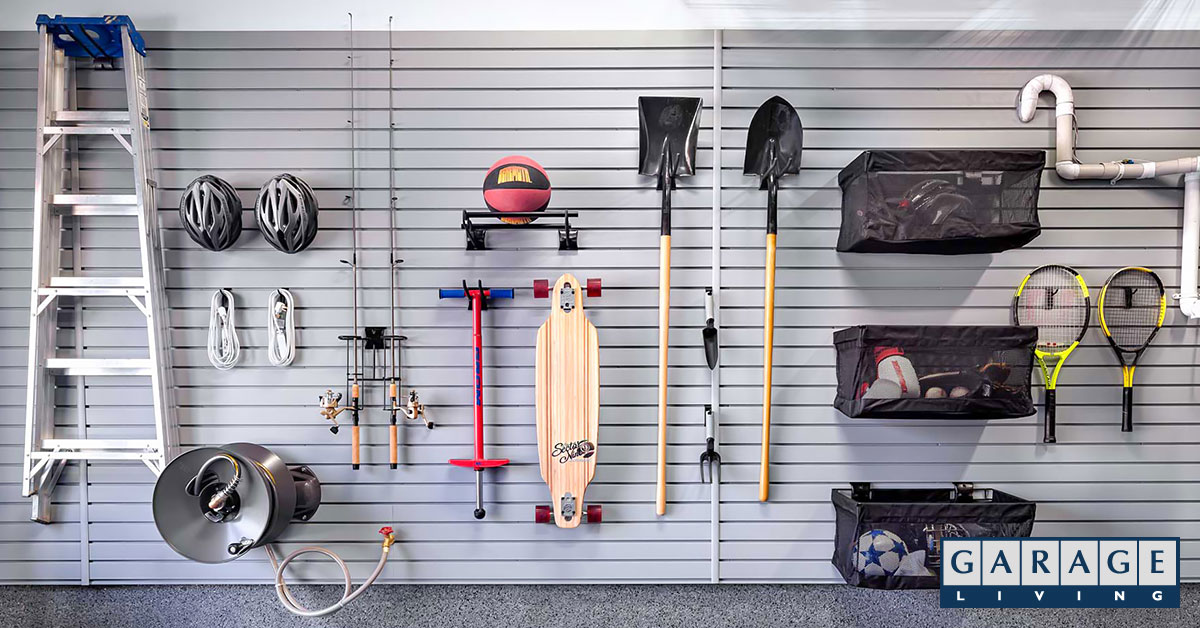The Storage Wars TV series has now run for 10 seasons comprised of well over 200 episodes. Regional spinoff versions of the show, along with other copycat shows that focus on the world of self storage units, are also in production.
One would think there couldn’t possibly be enough junk-related source material to fuel all of this entertainment. The shocking statistics involving the usage of self storage units tells another story, however.

1 in 10 households rent self storage units
Survey results released by the Self Storage Association show that self storage units are rented by 1 in 10 U.S. households. To put that in perspective, only 1 in 17 American households used self storage units in 1995.
There are currently an estimated 58,000 self storage units in the U.S. The Orlando Sentinel reports that this is more than the country’s number of McDonald’s, Subways, and Starbucks combined.
In Canada, which has around one tenth of America’s population, there are 3,000 self storage units. The rest of the world outside of those two countries only has a total of 10,000 self storage units.
With such heavy usage of off-site storage, it’s no wonder there are so many TV shows that deal with the topic. Clearly, North Americans are purchasing far more than they need and living beyond their means.
One of the end results of this is clutter and, by extension, finding enough storage space for all the things we own.
The financial hole only gets deeper when homeowners end up turning to self storage units as a perceived solution. In truth, there are many reasons to avoid using off-site storage facilities and here are nine of them.
1. Self storage units are too expensive
Self storage units come in sizes that most commonly range from 5′ x 5′ to 20′ x 20′. The most popular size for rental units is 10′ x 10′, which around 16% of American renters choose.
Aside from how big the space you need to rent is, factors like the storage facility’s location and whether or not you choose extra features like climate control will affect your monthly rental cost. Hidden costs also need to be factored in (more on that below).
Consumer Reports estimates that on average, a 10′ x 10′ self storage unit will cost you almost $2,000 per year to rent in the U.S. That cost rises dramatically when the self storage facility is in a large city. The same storage unit can end up costing $2,500 in Los Angeles and jumps to a whopping $3,700 in New York City.
In downtown Toronto, a 10′ x 10′ storage unit will currently cost you $325 to rent for four weeks. That works out to $200 more annually then you’ll pay for the same sized unit in The Big Apple (not counting the exchange rate).
Considering that the Self Storage Association’s stats show that more than half of those renting will keep their unit for a year or more, the costs can add up significantly. And, of course, you’ll have nothing tangible to show for your expenses when you end your rental agreement.
2. Hidden costs and extra services or features
On top of the storage unit’s basic monthly rental fee, hidden costs and services can increase what you originally expected to pay.
Some costs, like a storage unit setup fee and mandatory monthly insurance fees, have been known to be hidden in your rental contract’s fine print.
Then there’s the extra services and features the self storage facility will try to upsell to you to increase their profit margin. This can include paying extra for more secure locks or a better location for your storage unit that’s closer to the facility’s access points.
The bottom line is that you should expect to pay more for renting a self storage unit than the price you’ll get off their website.
3. The inconvenience of accessing your self storage unit
Clearly, any items being kept in a self storage unit aren’t exactly everyday use items for you. Even still, you’ve held onto them for a reason.
When you do you need to gain access to your unit, you’ll need to go to the trouble of making a trip to the storage facility. Depending on its location, that can be time-consuming.
On top of that, you’re at the mercy of the storage facility’s hours when it comes to getting into your storage unit. Many self storage locations aren’t open 24 hours or accessible on major holidays.
4. The worry of maintenance, theft, and damage
Even with a locked storage unit, you’re putting a lot of faith in complete strangers to safeguard the belongings you’ve stored. Here are some factors you’ll need to consider:
- Is there security personnel on the premises around the clock?
- How properly vetted and trained are the security personnel?
- Is there 24 hour video surveillance?
- How secure are the premises (including lighting, heights of gates, and crime rates in the area)?
- Does the facility have a proper sprinkler and fire alarm system?
- How clean and well-maintained is the facility?
- Does the climate control work properly to prevent mold, mildew, and pest problems?
- In the event of theft or damage to your belongings, how much insurance protection do you have?
Using a self storage unit doesn’t just mean placing your trust in the facility’s employees to keep your stored items safe. You also have no idea what the neighboring units have inside them. It could include everything from drugs to firearms to stolen merchandise to dangerous chemicals.
5. You don’t need most of what’s in your self storage unit
Self storage units can admittedly be useful in certain short-term situations. Perhaps you’re supposed to move but your newly built home isn’t quite ready yet, or the home you’re buying from someone hit an unexpected snag before the deal closed.
Or perhaps you need to travel overseas for an extended period of time and need somewhere to keep your things until you return. If you’re downsizing or going through a divorce, a self storage unit can help you store a bunch of extra belongings until you can figure out what to do with them.
However, the truth is that most self storage units are being used because a homeowner just hasn’t taken the time to properly declutter and let go of things they don’t need.
Anything that has true sentimental value that’s worthy of holding onto should probably be kept close, not stored in a remote location.
6. Self storage units hold you back from decluttering
Because your clutter has been stored in an off-site location, there’s a much greater chance you just won’t bother dealing with it. Out of sight, out of mind, as they say.
Before you know it, years will have passed and the junk in your storage unit will just collect more dust, while your bank account will be emptier.
And if you’ve had to resort to renting a self storage unit then it’s likely your home is being filled up with even more clutter. That makes your home less functional. Clutter is also a noted contributor to stress.
7. Others can make use of what you don’t need
“One man’s junk is another man’s treasure.”
You can use the thinking behind this well-known quote and apply it to your own situation to help you get rid of your junk and clutter.
This can include selling items you don’t need to local secondhand stores or online through sites like eBay and Craigslist.
Charities will also welcome donations of some of your items, particularly furniture. Furniture Bank in Canada and the U.S. can pick up your old furniture and make sure it gets to those in need.
For any useless clutter you have that can’t be donated or sold, spend a weekend getting it out of your home or storage unit. Rent a truck, enlist some help, and toss the items at your local dump or recycling facility.
8. Self storage units leave a big environmental footprint
If you’re environmentally conscious, consider the size of the environmental footprint left by storage facilities.
The Self Storage Association says that all of the storage units in America take up 2.3 billion square feet of space. The hydro costs for climate control and lighting for that much space must be staggering.
It puts a needless and wasteful burden on our resources, especially when you consider so much of the contents of self storage units is just junk.

Add better storage and organization systems to your home (like slatwall panels) instead of wasting money on a self storage unit rental.
9. You’re better off upgrading your home’s storage and organization systems
It should be obvious that self storage units simply aren’t a financially viable storage solution. The thousands of dollars you’ll spend over many years for off-site storage could be invested in better storage and organization systems for your home.
That’s something the estimated 65% of homeowners who have garages – yet still rent self storage units – have failed to discover.
While the garage may be a clutter hotspot, there are storage solutions available for this space that can minimize the amount of clutter in your home.
Garage Living knows that your garage walls and vertical space are typically not used to their full potential. We can remedy that in the following ways:
- adding specialty overhead racking for bulkier items like tires and seasonal items
- installing PVC slatwall panels on your walls to hang items and keep the garage floor clear
- adding a modular or custom-fit garage cabinetry system
The bottom line: renting self storage units is a bad idea
Renting a self storage unit on a long-term basis just doesn’t make much sense. Take the time to declutter and re-evaluate the effectiveness of the storage systems in your garage and elsewhere in your home.
For help with turning your garage into a more functional space, schedule a free consultation with one of our design experts.